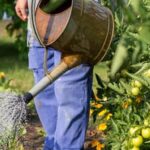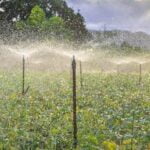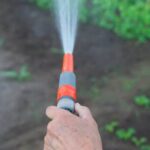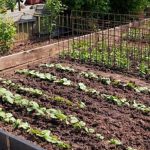Are you a Florida resident interested in vegetable gardening in Florida winter? The mild climate of this region makes it an ideal location for growing a variety of vegetables even during the winter months. With the right knowledge and preparation, you can enjoy a successful vegetable garden throughout the winter season.
When it comes to vegetable gardening in Florida winter, there are plenty of options for what you can grow. From leafy greens to root vegetables, the warm temperatures and ample sunshine create a favorable environment for many types of crops. Whether you’re a seasoned gardener or just starting out, understanding the ins and outs of winter gardening in Florida is essential for your garden’s success.
In this article, we will delve into the best vegetables to grow in Florida winter, how to prepare your garden for the season, tips for maintaining a successful garden, dealing with common pests and diseases, as well as understanding the unique climate and weather challenges that come with vegetable gardening in Florida winter.
Additionally, we’ll discuss harvesting and post-harvest care for your winter vegetables, along with providing resources and additional information to support your Florida winter vegetable gardening journey.
So, let’s get started on creating a thriving winter vegetable garden in Florida.
Best Vegetables to Grow in Florida Winter
Florida’s mild winter climate provides the perfect opportunity for vegetable gardening during the cooler months. The state’s unique conditions allow for a variety of vegetables to thrive, making it an ideal time to grow a bountiful garden. When choosing which vegetables to plant in your Florida winter garden, there are several options that are well-suited for the season.
Leafy Greens
Leafy greens such as lettuce, kale, and spinach are excellent choices for Florida’s winter garden. These vegetables are cold-hardy and can withstand the cooler temperatures that often occur during the winter months. They also tend to mature quickly, allowing for a continuous harvest throughout the season.
Root Vegetables
Root vegetables like carrots, beets, and radishes can also thrive in a Florida winter garden. These crops prefer cool weather and can be planted in the fall for a successful winter harvest. With proper care and maintenance, root vegetables can produce high yields even in the lower temperatures of the season.
Cruciferous Vegetables
Cruciferous vegetables including broccoli, cauliflower, and Brussels sprouts are well-suited for growing in Florida’s winter climate. These cold-tolerant crops can be planted in late summer or early fall to ensure a plentiful harvest during the cooler months. By choosing these vegetables for your winter garden, you can enjoy an abundant supply of nutritious produce throughout the season.
By selecting the right vegetables for your Florida winter garden, you can ensure a successful harvest despite the challenges posed by lower temperatures. With proper planning and care, you can enjoy fresh and nutritious produce straight from your own backyard during the winter months.
Preparing Your Garden for the Winter Season
As the temperatures begin to drop in Florida, it’s essential to prepare your garden for the winter season. Here are some important steps to take to ensure a successful vegetable garden during the colder months.
Preparing Your Soil
Before the winter sets in, it’s crucial to enrich your soil with organic matter such as compost or well-rotted manure. This will help improve the soil structure and fertility, providing a healthy foundation for your winter vegetables. Consider conducting a soil test to determine if any specific nutrients are lacking and amend accordingly.
Selecting Cold-Tolerant Varieties
When planning your winter vegetable garden, it’s important to choose varieties that can withstand the cooler temperatures in Florida. Some excellent options for winter vegetables include carrots, kale, lettuce, radishes, spinach, and Swiss chard. These cold-tolerant varieties are more likely to thrive during the Florida winter season.
Protecting Against Frost
While Florida winters are relatively mild compared to other parts of the country, there may still be occasional frost events. Be prepared to protect your plants by covering them with cloths or plastic sheets when frost is forecasted. Additionally, consider planting your vegetables in raised beds or containers where it’s easier to control temperature and moisture levels.
By following these steps and preparing your garden for the winter season, you can set yourself up for a successful vegetable gardening experience even during the cooler months in Florida. With proper planning and care, you can enjoy a bountiful harvest of fresh produce throughout the winter season.
Tips for Maintaining a Successful Vegetable Garden During Florida Winter
Proper Soil Preparation
One of the keys to maintaining a successful vegetable garden during Florida winter is proper soil preparation. Ensure that your soil is well-draining and has adequate organic matter. Consider adding compost or aged manure to improve the soil structure and fertility. Testing your soil’s pH levels can also help you determine if any amendments are needed for optimal plant growth.
Protecting Against Temperature Fluctuations
Florida winters can be unpredictable, with sudden drops in temperature that can harm delicate vegetable plants. To protect your garden from these temperature fluctuations, consider using row covers, cold frames, or even simple blankets or towels to cover your plants during cold snaps. Keep an eye on weather forecasts and be prepared to protect your garden when necessary.
Watering Wisely
Proper watering is essential for maintaining a healthy vegetable garden in Florida winter. While the cooler temperatures may result in less evaporation, it’s important to monitor soil moisture levels and ensure that your plants are receiving adequate water. Be mindful of potential rainfall patterns and adjust your watering schedule accordingly. Avoid overwatering, as this can lead to issues such as root rot in some vegetable varieties.
By following these tips for maintaining a successful vegetable garden during Florida winter, you can help ensure that your plants thrive despite the challenges of the season. With proper care and attention, you can enjoy a bountiful harvest of fresh, homegrown vegetables even during the cooler months in the Sunshine State.
Dealing With Common Pests and Diseases in Florida Winter Vegetable Gardening
Florida’s mild winter climate can be a haven for both vegetables and pests. It is essential for vegetable gardeners in Florida to be familiar with the common pests and diseases that can affect their crops during the winter season.
One of the most common pests in Florida winter vegetable gardening is the whitefly, which can cause damage to a wide variety of plants including tomatoes, peppers, and squash. To control this pest, it is recommended to regularly inspect the undersides of leaves for eggs and nymphs, and use insecticidal soap or horticultural oil as organic control methods.
Another common issue vegetable gardeners face in Florida winter is fungal diseases such as powdery mildew and downy mildew. These diseases thrive in the warm, humid conditions typical of Florida winters. To prevent fungal diseases, it is important to provide good air circulation around plants by spacing them properly and avoiding overhead watering. Additionally, applying fungicidal sprays can help control fungal infections in your winter vegetable garden.
In addition to pests and diseases, Florida vegetable gardeners also have to contend with potential wildlife threats such as birds and small mammals that may feed on their crops. Protecting your garden with physical barriers or deterrents can help minimize damage from these animals, ensuring a successful harvest of your winter vegetables.
To combat these challenges effectively, it’s crucial for Florida vegetable gardeners to stay vigilant and proactive in managing common pests and diseases throughout the winter season.
| Common Pests | Common Diseases |
|---|---|
| Whitefly | Powdery Mildew |
| Aphids | Downy Mildew |
| Caterpillars | Bacterial Leaf Spot |
Understanding the Climate and Weather Challenges of Vegetable Gardening in Florida Winter
When it comes to vegetable gardening in Florida winter, understanding the climate and weather challenges is crucial for a successful harvest. Florida winters can be unpredictable, with fluctuating temperatures and occasional frosts or freezes. This can make it challenging to maintain a healthy garden and ensure the survival of your winter vegetables. Here are some key climate and weather challenges to consider when vegetable gardening in Florida winter:
- Fluctuating Temperatures: In Florida winter, temperatures can vary greatly from day to night, as well as from week to week. This can affect the growth and development of winter vegetables, leading to stunted growth or bolting.
- Frosts and Freezes: While Florida is known for its warm climate, certain regions experience frosts and even occasional freezing temperatures during the winter months. It is important to be prepared for these events and take necessary precautions to protect your crops.
- Humidity: Florida is notorious for its high humidity levels, which can create favorable conditions for fungal diseases in the garden. Proper air circulation and moisture management are essential to prevent issues such as powdery mildew and leaf spot.
To overcome these climate and weather challenges when vegetable gardening in Florida winter, it is important to carefully select cold-hardy vegetable varieties that can withstand temperature fluctuations and brief cold spells. Additionally, providing adequate mulching, row covers, or other protective measures can help safeguard your crops against frosts and freezes. It is also advisable to monitor weather forecasts regularly so that you can be proactive in protecting your garden when adverse conditions are expected.
By understanding the unique climate and weather challenges of vegetable gardening in Florida winter, you can implement proper strategies to mitigate their impact on your garden and increase the chances of a bountiful harvest despite the unpredictable nature of the season.
Harvesting and Post-Harvest Care for Winter Vegetables in Florida
Once your winter vegetables have reached maturity, it is essential to harvest them at the right time to ensure the best flavor and quality. The timing of harvesting can vary depending on the type of vegetable you are growing.
For example, root vegetables such as carrots and radishes should be harvested when they have reached a good size and are still tender. On the other hand, leafy greens like spinach and kale can be harvested when the leaves are young and tender.
After harvesting your winter vegetables, proper post-harvest care is crucial to prolong their shelf life. It is important to handle them with care to avoid bruising or damage. Additionally, storing them in a cool, dark place can help maintain their freshness for a longer period. Some vegetables, like carrots and beets, can even be stored in a refrigerator for an extended period if kept in plastic bags to retain moisture.
Here are some general guidelines for post-harvest care of winter vegetables:
- After harvesting, wash the vegetables gently to remove any dirt or debris.
- Allow them to air dry completely before storing to prevent mold or rot.
- Store root vegetables in a cool, moist environment such as a root cellar or refrigerator.
- Leafy greens should be stored in plastic bags in the refrigerator crisper drawer.
Your choices about what post-harvest method makes will depend on how much space you have available. Whether you follow these practices outside with storage tubs or specialized storage rooms nature necessary step when considering vegetable gardening comes wintertime.
| Vegetable | Post-Harvest Care |
|---|---|
| Carrots | Store in root cellar or refrigerator after washing and air-drying |
| Kale | Store in plastic bags in refrigerator crisper drawer after washing and air-drying |
| Radishes | Store in root cellar or refrigerator after washing thoroughly with cold water |
Resources and Additional Information for Florida Winter Vegetable Gardening
In conclusion, vegetable gardening in Florida during the winter season can be a rewarding and fruitful experience. By carefully selecting the right vegetables to grow, preparing your garden adequately, and understanding the unique climate and weather challenges of Florida’s winter, you can maintain a successful garden throughout the colder months.
One of the keys to success in Florida winter vegetable gardening is knowing which vegetables thrive in this season. With a wide variety of options such as broccoli, lettuce, carrots, and kale, there are plenty of choices for gardeners to explore. By understanding the best practices for maintaining these crops and dealing with common pests and diseases, you can ensure a bountiful harvest.
As you continue your journey into vegetable gardening in Florida during the winter season, it’s important to seek out additional resources and information. Whether it’s attending local workshops or accessing online guides specific to Florida gardening, having access to valuable knowledge will only enhance your gardening experience. With dedication and perseverance, you can enjoy the fruits (and vegetables) of your labor throughout the winter months in Florida.
Frequently Asked Questions
What Vegetables Can I Grow in Florida in Winter?
In Florida, you can grow a variety of vegetables in the winter. This includes carrots, lettuce, spinach, broccoli, cauliflower, and peas. These vegetables thrive in the cooler temperatures and milder winters of Florida.
When Should I Start a Vegetable Garden in Florida?
The best time to start a vegetable garden in Florida is typically in the fall. This allows the plants to establish themselves before the colder winter months. Depending on which part of Florida you live in, August or September is usually a good time to start planting your vegetable garden.
When Should I Start My Winter Vegetable Garden?
You should start your winter vegetable garden in Florida around October or November. This timing allows you to take advantage of the milder temperatures and abundant sunshine during the winter months. Planning and starting your garden at this time will ensure that your winter vegetables have enough time to mature before spring arrives.

If you’re looking to get into vegetable gardening, or are just looking for some tips on how to make your current garden better, then you’ve come to the right place! My name is Ethel and I have been gardening for years. In this blog, I’m going to share with you some of my best tips on how to create a successful vegetable garden.





